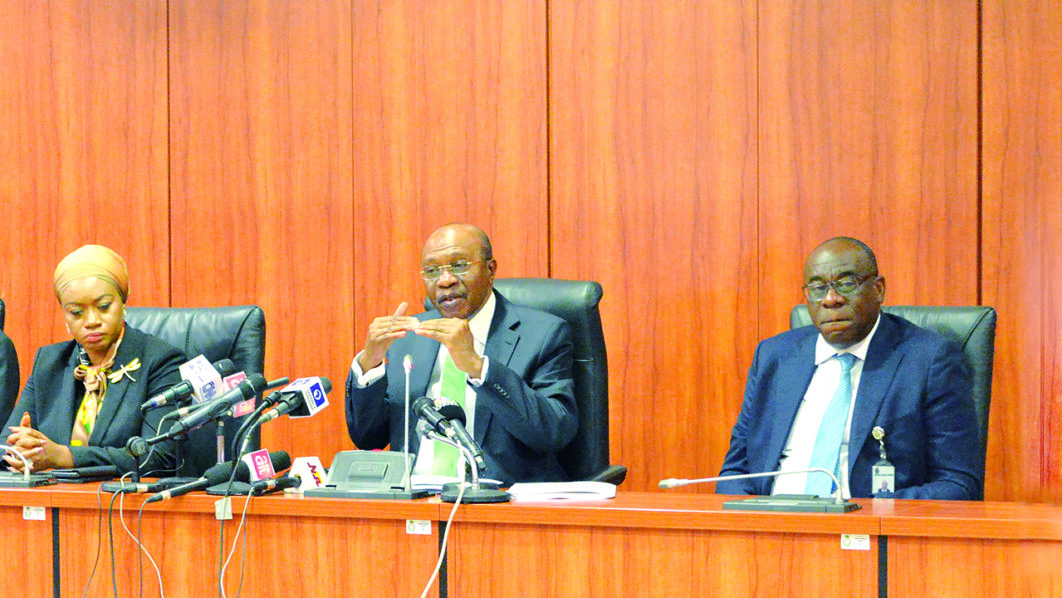
Withdrawals and deposits of physical cash in Nigeria will now attract processing fees payable by individuals or corporate owners of bank accounts involved.
Nigeria’s central bank said the measure was put in place to encourage its cashless policy and will take effect on September 18 in Lagos, Kano, Rivers, Ogun, Anambra, Abia and Nigeria’s capital city Abuja.
It will become effective in all states of Nigeria on March 31, 2020.
[ad]
Cash withdrawal by an individual from N500, 000 and above will attract 3% of the amount withdrawn while cash deposit of N500, 000 and above will attract 2% of the amount to be deposited.
5% processing fee will be levied on cash withdrawals from N3 million and above from a corporate account while cash deposits attract 3% processing fee.
The charges are an addition to the already existing ones, the CBN’s Director of Payments System Management Department Sam Okojere, said in a memo to deposit banks on Tuesday.
[ad]
The impose of extra charges by the CBN may not be unconnected to the President Muhammadu Buhari’s government struggles to boost non-oil revenue since oil sales make up 90% of foreign-exchange receipts.
The Nigerian government in August announced plans to increase value-added tax on goods in 2020 from 5% to 7.2% – the current level is one of the lowest in the world. The increase is expected to generate not less than N2 trillion into the government coffers in 2020.
“This is important because the federal government only retains 15% of the VAT – 85% is actually for the states and local government,” Finance Minister Zainab Ahmed said on Thursday.
“The states need additional revenue to be able to meet the obligations of the minimum wage,” she added.
However, the government plans have since elicited mixed reactions.
The Partner/Head of Tax and Corporate Advisory Services at PwC, Taiwo Oyedele, in a chat with The Guardian said that while the increase of 2.2 per cent might appear small, “it is, in fact, a 44 per cent increase in VAT cost to many businesses and consumers.”
Taiwo said the negative would impact include increase in prices of products, leading to higher inflation and less disposable income for already poor households.
“The situation will result in lower consumption and a decline in growth rate,” he added.



